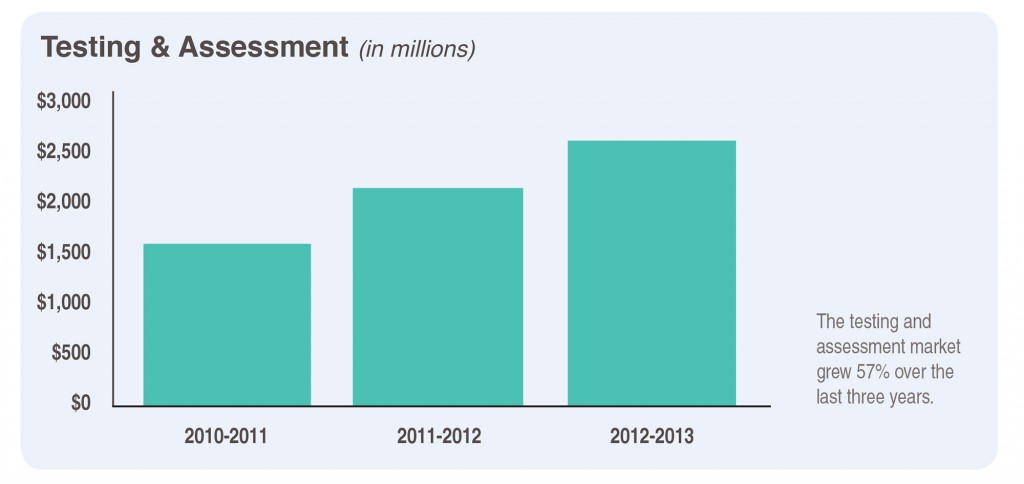
This is what testing and assessment looks like in more and more classrooms.
A new report highlights that spending on digital testing and assessment tools neared $2.5 billion in the academic year 2012-13.
The report, published by the education division of the Software & Information Industry Association, finds the increase, “has occurred in difficult economic times during an overall PreK-12 budget and spending decline,” the authors write in an executive summary made available for free.
During the last three years, the analysts conclude that spending on these tools has grown some 57 percent, making it “now the largest single category of educational technology sales –defined as software, digital content, and related digital services— reported by vendors responding to the SIIA annual survey U.S. Education Technology Market: PreK-12.”

The full report, which costs some $350, also folds in interviews with 20 firms that are currently working in the area of digital testing and assessment.
The interviewers note they heard a consistent message around why spending in this area of technology has grown so much and much of it has to do with states and districts incorporating the Common Core State Standards around education. These new standards required new tests and assessments for schools in dozens and states. This development, coupled with a general shift from paper to digital tools has trigged a surge in spending on assessment tools.
Obviously few games fulfill the requirements that a digital testing service may provide, but many game development firms have highlighted the use of games as a general assessment tool as central to their widespread adoption in schools.
“[N]obody questions whether games have a role in education any more. All the debate now is what’s the role and how do we take advantage of it. Assessment is a massive part of that discussion because everything is going online. Like it or not, auto-assessment is the Holy Grail because it relieves teachers of the burden of assessing things directly… It’s so much more efficient. Games give us the ability to bring these sorts of higher-level thinking, complex activities into that realm and I think that’s absolutely crucial to their adoption,” Muzzy Lane’s Dave McCool said earlier this year.
Game development firms continue to eye the investment in assessment tools as a potential market they can appeal to, so the SIIA report can be seen as good news, but there are still cautions in it.
The authors note that, “There is a broad question about how best to preserve the privacy and security of student data” and that the growth of statewide formal tests – known as summative assessments that are conducted at the end of a learning assignment has slowed and will remain slow as states figure out how to implement the Common Core.
